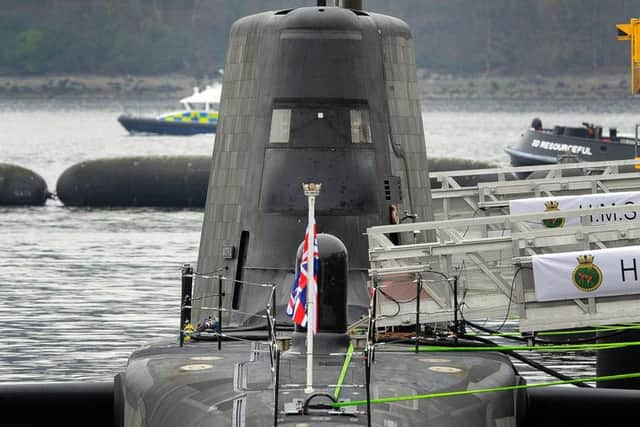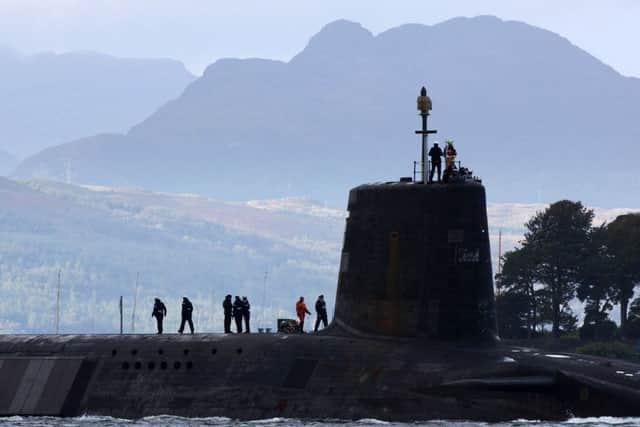Household energy bills ‘subsidising’ Scotland’s nuclear submarines
A group of experts told MPs the UK government remains committed to civilian nuclear power as it helps cross-subsidise the country’s nuclear deterrent, based at HMNB Faslane on the Firth of Clyde.
They argue that nuclear power is too expensive to maintain and operate and should be scrapped in favour of renewable alternatives.
Advertisement
Hide AdAdvertisement
Hide AdThe Scottish Government has already ruled out building any further nuclear power stations north of the Border, with the two remaining in operation due to cease generation over the next 15 years.


But the UK government is committed to building a new generation of nuclear power stations, with eight possible sites across England and Wales identified in 2010.
Hinkley Point C, the first of these due to be completed, was signed off in 2016 with an estimated construction price tag of around £20 billion.
Researchers from the University of Sussex told the MPs on Westminster’s Business Select Committee this week that ministers should be up front about the inter-dependence of the civilian nuclear programme and the nuclear defence industry.
Professor Andy Stirling argued that one reason UK ministers are happy to burden households with the expense of nuclear energy is because it underpins the supply chain and skills base for firms that work on nuclear submarines, such as Babcock and Rolls Royce.


He said: “It is clear that the costs of maintaining nuclear submarine capabilities are insupportable without parallel consumer-funded civil nuclear infrastructures.
“The accelerating competitiveness of renewable energy and declining viability of nuclear power are making this continuing dependency increasingly difficult to conceal.”
A spokesperson for the Department for Business, Energy & Industrial Strategy said: “We believe having a diverse energy mix is the best way of ensuing energy security while allowing us to meet our climate commitments.
Advertisement
Hide AdAdvertisement
Hide Ad“Nuclear has an important role to play as we transition to a low-carbon economy, but as with any technology, it must represent good value for money for the taxpayer and consumer.”
The UK’s nuclear deterrent comprises of four Vanguard-class submarines, armed with Trident missiles, with at least one at sea at any given time.
The SNP has long argued in favour of scrapping the system.
Stewart Macdonald, the party’s defence spokesman, told The Scotsman: “Eye watering sums of money has already been wasted by the Ministry of Defence and it not for the public to bail them out.
“Ministers and officials of the current and previous governments need to answer how this sorry situation has been arrived at. The public have a right to know how much of their own money is subsidising the MoD.
“Asking the public to partly fund the MoD’s own failed decisions is outrageous. The Government should not be backing civilian nuclear power in order to cross-subsidise the defence industry.”
A government spokesperson said: “It is not government policy for the civil nuclear power programme to subsidise the UK’s defence industry. Nuclear power has an important role to play as we transition to a low-carbon economy, but as with any technology, it must represent good value for money for the taxpayer.”